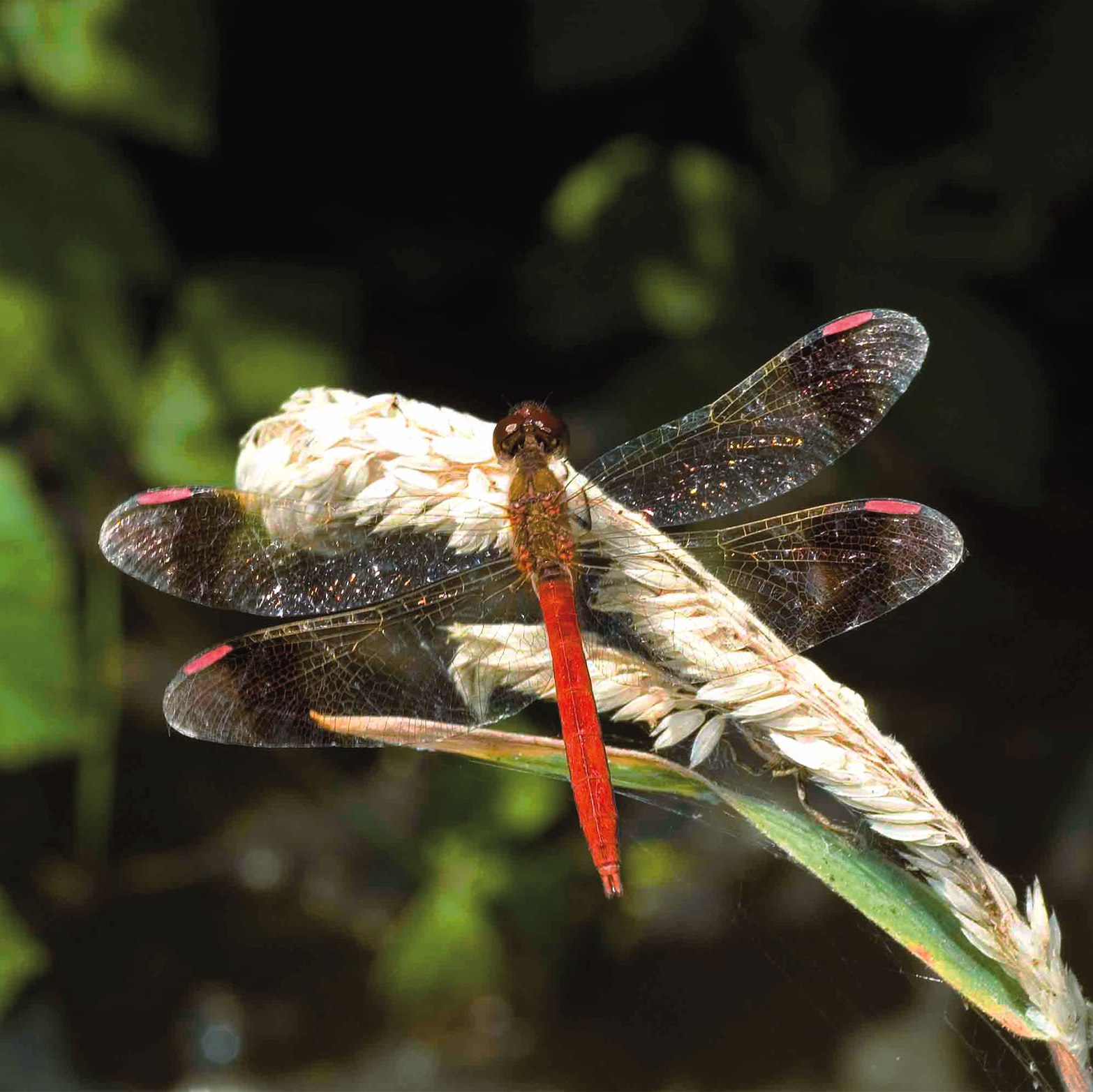Dragonflies go thirsty in the Mediterranean
One fifth of Mediterranean dragonflies and damselflies are threatened with extinction at the regional level as a result of increasing freshwater scarcity, according to the IUCN Red List of Threatened Species™.

Photo: Fabio Pupin
Climate change and habitat degradation, due to the way land is managed, are also affecting the insects, says the report.
The assessment of 163 Mediterranean dragonflies and damselflies shows five are Critically Endangered, 13 are Endangered, another 13 are Vulnerable, 27 are Near Threatened, 96 are Least Concern and six are Data Deficient, meaning there is not enough information to classify them, but they might also be threatened.
“It is likely things will only get worse for these unique species as climate change and increased water demand take their toll,” says Jean Pierre Boudot, member of the IUCN Dragonfly Specialist Group and co-author of the report. “Lower levels of precipitation and drought will lead to degradation of the habitats where the majority of dragonflies and damselflies live.”
Four species are already listed as Extinct in the Mediterranean, including the Little Whisp (Agriocnemis exilis), the Common Pond Damsel (Ceriagrion glabrum), the Phantom Flutterer (Rhyothemis semihyalina) and the Darting Cruiser (Phyllomacromia africana).
Dragonflies are generally known for being good indicators of water quality. Major threats for 67 percent of these Mediterranean species are habitat degradation and pollution. The Spotted Darter (Sympetrum depressiusculum), which used to be common in the Mediterranean, is now listed as Vulnerable and is declining due to the intensification of agricultural practices in rice fields.
Fourteen percent of these insect species can be found only in Mediterranean freshwater ecosystems, some of the richest and most threatened habitats, among which nine have been assessed as Endangered or Vulnerable. According to the report, the highest numbers of endemic dragonflies are present in the South and West of the Mediterranean, with the Maghreb and the Levant areas being regional hotspots of endemism.
The majority of the threatened species are concentrated in the Levant, southern Turkey and Balkans, northeast Algeria and northern Tunisia. The Glittering Demoiselle (Calopteryx exul), for example, is listed as Endangered and is in decline. It inhabits the aquatic habitats of the Maghreb, whose ecosystems are under pressure due to water-harnessing for human use, water pollution, irrigation and drought.
Long-term coordinated actions are needed at regional, national and international level, and the results of this report highlight the responsibility that Mediterranean countries have to protect the global populations. Though some species are already receiving some conservation attention thanks to international laws, such as the Ornate Bluet (Coenagrion ornatum) which is included in the European Habitat Directive, others are not protected at all, despite their high risk of extinction.
“The selection and protection of key sites are essential to ensure the survival of these species,” says IUCN’s Annabelle Cuttelod, co-author of the report. “Their ecological requirements need to be taken into account in the planning and management of water use, especially for agriculture purposes or infrastructure development. IUCN Red List data can inform both processes.”
Full report: https://www.iucn.org/downloads/mediterranean_dragonflies_en_web.pdf
For more information or to set up interviews, please contact:
- Sonsoles San Román, IUCN-Med Communication Officer, t +34 952 028430, e sonsoles.sanroman@iucn.org
- Sarah Horsley, IUCN Media Relations Officer, t +41 22 999 0127, m +41 79 528 3486, e sarah.horsley@iucn.org
Notes to editors
- In addition to the Mediterranean odonata assessment, 1,912 species of amphibians, birds, cartilaginous fishes, endemic freshwater fishes, crabs and crayfish, mammals, and reptiles have been assessed to date in the Mediterranean region. About 19 percent of these species are threatened with extinction: 5 percent Critically Endangered, 7 percent Endangered and 7 percent Vulnerable.
- The assessment was carried out with the support of relevant scientists from the countries bordering the Mediterranean Basin in collaboration with the IUCN Dragonfly Specialist Group, to which they contributed with their expertise to gather the data, and to assess the conservation status that would be the basis for future conservation action.
- This project was funded by the European Commission, the Mava Foundation and the Spanish Agency for Cooperation and Development (AECID).
The IUCN Red List of Threatened Species™ is the most comprehensive conservation inventory of the world’s plant and animal species and a widely used tool for focusing attention on species of conservation concern. The assessments evaluate the conservation status of individual species, identify threatening processes affecting them and, if necessary, propose recovery objectives for their populations. www.iucnredlist.org .
The IUCN Red List threat categories are the following, in descending order of threat:
- Extinct or Extinct in the Wild
- Critically Endangered, Endangered and Vulnerable: species threatened with extinction
- Near Threatened: species close to the threatened thresholds
- Least Concern: species evaluated with a low risk of extinction
- Data Deficient: no evaluation because of insufficient data
Species classified as Vulnerable, Endangered or Critically Endangered are considered Threatened.
Click on the photos below for high resolution versions. Please note these photos may only be reproduced in connection with a story on this press release.



